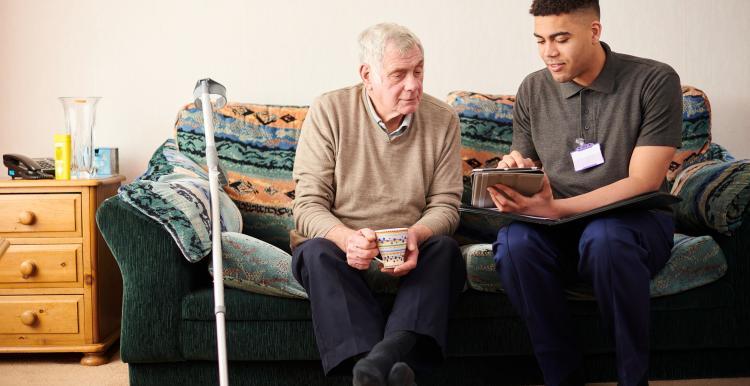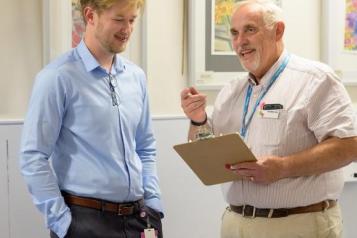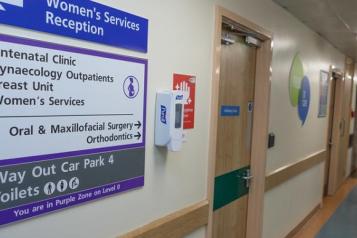Public feedback helps change dementia care

Healthwatch Suffolk wanted to understand how well efforts to support people with dementia in the county were working, and what could improve things. The Suffolk Health and Wellbeing Board had first committed to creating a “dementia-friendly” county in 2015, and in 2021 signed up to a shared vision set out by the Suffolk Dementia Forum:
“People living with dementia and their carers in Suffolk will have the best opportunities to be safe and well and continue to live an active life of their choosing, within an informed community that supports, includes and values them.”
Healthwatch Suffolk teamed up with the Dementia Action Partnership, a local network of leaders and organisations that supports people with or caring for someone with dementia. They researched the experiences of people in the community with dementia and their carers when accessing local health and care services.
What issues did people have with dementia care?
Through a survey and interviews, over a hundred local people who had dementia or were supporting someone shared their views with Healthwatch Suffolk.
Their experiences painted an extensive picture of the challenges they face. People shared issues that covered every stage of their journey with dementia.
Some talked about long waits for assessment, others about cultural and language barriers that delayed diagnosis. There were instances of the diagnosis not being shared in a sensitive, compassionate way.
Once people had got their diagnosis, many who shared their stories found a lack of support – with managing the illness, with day-to-day needs, or if the person needed hospital care. There were stories of care not being coordinated between services, and of carers being shut out from involvement in decisions.
What could make dementia care better?
Healthwatch Suffolk shared recommendations based on what people said, covering the entire experience of living with dementia.
These included highlighting the importance of information about early signs and helping people access support once they had a diagnosis. They showed how key it is that people are treated with compassion, and that adjustments are made to accommodate their individual needs. They shared the need for better knowledge of dementia in hospitals, and better coordinated care between services.
How has dementia care in Suffolk changed?
The report went on to play a key role in shaping the Suffolk Dementia Strategy. Numerous recommendations that Healthwatch Suffolk made are key priorities, from increasing public awareness to providing the right training for hospital staff to support people with dementia and their families.
The goal of the new strategy is to create a society without stigma. It intends to make people with dementia feel safe in the knowledge that services are based on an understanding of their needs. And it aims to empower people to access information, advice, guidance, and support, which should be readily available whenever they or their families need it.
Recently, the local NHS and Suffolk County Council have provided £2.5million in funding to deliver a new dementia support service based on the strategy. This service aims to empower people with dementia to live independently, safely and well in their community.
And as local services continue to improve care, Healthwatch Suffolk’s report remains a pivotal piece of research.


